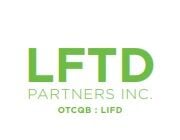The approximately 3,000 fragrance-producing ingredients in current use have all been evaluated; those not yet published await peer-review MAHWAH, N.J. , Sept.
20, 2024 /PRNewswire/ -- The Research Institute for Fragrance Materials (RIFM) Safety Assessment Program has published peer-reviewed safety assessments covering over 2,000 fragrance materials in the peer-reviewed literature. RIFM President Anne Marie Api , Ph.D.
, Fellow ATS, highlighted the achievement at the Institute's 58 th Annual Meeting last week. "RIFM has published thousands of peer-reviewed datasheets, group summaries, evaluations, and research papers addressing the safe use of scent-producing ingredients since the early 1970s," Dr. Api explained.
"In the 21 st century, we pivoted to research and next-generation risk assessments (NGRAs) focused on animal-free science, strategically using new approach methodologies (NAMs) to save well over half a million animals." RIFM does no animal testing for any of its human health endpoints. Danielle Botelho , Ph.
D., Director of Scientific Operations at RIFM elaborated, "This milestone is significant, given that the complete palette of discrete fragrance ingredients is approximately 2,200 materials in any given year. In addition to the discrete materials, the fragrance-producing palette includes approximately 900 Natural Complex Substance (NCS) ingredients distilled from natural sources.
RIFM anticipates completing safety assessments for the first round of NCS by 2028." Abou.


















